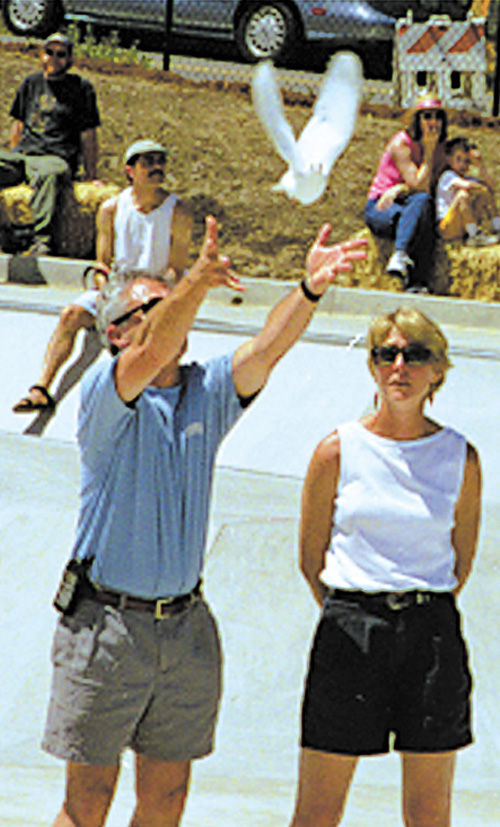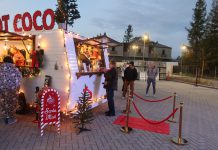Dedicated parents and volunteers reflect on successful community effort
At a Healdsburg City Council meeting on Oct. 3, Chick and Cookie Warner announced that after 19 years, the Carson Warner Memorial Skatepark Committee is disbanding.
Out of the remaining funds of the committee, $1,000 was given to the Healdsburg Police Officers’ Association, which let the committee use its nonprofit tax status over the last two decades for reporting.
The rest of the money, over $26,000, was given to the city to be used towards major skate park improvement projects.
The park has a 19-year legacy in the community. In June 1996 the Warner’s 13-year-old son, Carson, sent a letter to then Mayor Cathy Harvey requesting the city build a skate park.
Only a few weeks later, the day after his 14th birthday, Carson was killed in an ATV accident in Ferndale. Following Carson’s death, his parents were surrounded by a community of friends and family who wanted nothing more than to honor the memory of a vibrant, active young man.
Cookie Warner said that it was as early as the night after Carson’s accident that they had the idea to bring to life their son’s dream of a skate park in Healdsburg.
“When you lose a child, in some ways you’re a lot stronger (…) you have the motivation of a bulldog,” Chick Warner said. “And we saw that – we knew the skate park was good for the community and we knew it was good for the kids – we weren’t going to listen to anything else. We were going to get that done.”
Which is exactly what the couple and a group of volunteers did, fundraising $190,000 to build the skate park on a city-donated Grove Street lot.
Officials were initially not interested in a city-managed skate park because of liability concerns, the Warners explained.
That’s when the skate park committee began addressing the issue at the state level, with hopes to reform law and add skateboarding to a list of known hazardous activities, which would remove any fault of the city if someone were to get injured at the park.
“We went to the California State Capitol, took a couple of kids with their skateboards over there and just lobbied for this to happen,” Cookie Warner said, which it eventually did.
Skateboarding was added to the list, opening the door for cities across the state to follow and build their own parks.
The skate park still serves as an example for other communities for its design, beauty and graffiti-free landscape, the Warner’s said.
One of the original, young lobbyists was 14-year-old Heather Varanini (Simmons), who spoke in front of state legislators about changing the law.
“She’s now grown, she’s married and she’s in law school,” Chick Warner said. “She claims that the Carson Warner Memorial Skate Park is the reason that she’s in law school. That emboldened her. It helped her understand that the legislative process can work.”
Cookie said one of the most memorable parts of the entire process is hearing about the ways in which it changed individuals’ lives like Varanini.
Smiling ear-to-ear, Cookie and Chick recounted one City Council meeting held at the old City Hall, where Oakville Grocery now exists. Cookie Warner said the room was packed with youth and their skateboards, waiting to hear what the city would decide. The city had to set up speakers so overflow people attending the meeting could hear the decision from the street.
“The way that it came about was so much better for the community than if the city or the state had just said, ‘Oh, here’s a skate park,’” Chick Warner said. “We would have loved for that to happen, but because the sweat, blood and tears and the whole community participation, a lot of people around the town feel like they’re part of the history.”








